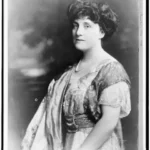 | |
The Game | |
| Author | Mary Roberts Rinehart |
|---|---|
| Published |
1912
|
| Language | English |
| Nationality | American |
| Genre | Detective Fiction, Mystery |
1912 Short Story
The Game
The Game is an English Detective Fiction, Mystery short story by American writer Mary Roberts Rinehart. It was first published in 1912. The Game is Rinehart's thoroughly engaging story about a "fatherless wharf-rat and childless engineer; the man acting on the dour Scot principle of chastening whomsoever he loveth, and the boy cherishing a hate that was really only hurt love."
The Game
by Mary Roberts Rinehart
I
The Red Un was very red; even his freckles were red rather than copper-coloured. And he was more prodigal than most kings, for he had two crowns on his head. Also his hair grew in varying directions, like a wheatfields after a storm. He wore a coat without a tail, but with brass buttons to compensate, and a celluloid collar with a front attached. It was the Red Un’s habit to dress first and wash after, as saving labour; instead of his neck he washed his collar.
The Red Un was the Chief Engineer’s boy and rather more impressive than the Chief, who was apt to decry his own greatness. It was the Red Un’s duty to look after the Chief, carry in his meals, make his bed, run errands, and remind him to get his hair cut now and then. It was the Red Un’s pleasure to assist unassumingly in the surveillance of that part of the ship where the great god, Steam, ruled an underworld of trimmers and oilers and stokers and assistant engineers–and even, with reservations, the Chief. The Red Un kept a sharp eye on the runs and read the Chief’s log daily–so much coal in the bunkers; so much water in the wells; so many engine-room miles in twenty-four hours–which, of course, are not sea miles exactly, there being currents and winds, and God knows what, to waste steam on.
The Red Un, like the assistants, was becoming a bear on the speed market. He had learned that, just when the engines get heated enough to work like demons, and there is a chance to break a record and get a letter from the management, some current or other will show up–or a fog, which takes the very tripe out of the cylinders and sends the bridge yapping for caution.
The Red Un was thirteen; and he made the Chief’s bed by pulling the counterpane neatly and smoothly over the chaos underneath–and got away with it, the Chief being weary at night. Also, in odd moments he made life miserable for the crew. Up to shortly before, he had had to use much energy and all his wits to keep life in his starved little body; and even keeping an eye on the log and the Chief’s hair, and slipping down into the engine room, where he had no manner of business, hardly used up his activities. However, he did not lie and he looked the Chief square in the eye, as man to man.
The Chief had salvaged him out of the Hudson, when what he had taken for a bobbing red tomato had suddenly revealed a blue face and two set and desperate eyes. After that the big Scot had forgotten all about him, except the next day when he put on his shoes, which had shrunk in the drying. The liner finished coaling about that time, took on passengers, luggage, steamer baskets and a pilot, and, having stowed the first two, examined the cards on the third and dropped the last, was pointed, nose to the east wind, for the race.
The arrow on the twin dials pointed to Stand By! for the long voyage–three thousand miles or so without a stop. The gong, and then Half Ahead!–great elbows thrust up and down, up and down; the grunt of power overcoming inertia, followed by the easy swing of limitless strength. Full Ahead!–and so off again for the great struggle–man’s wits and the engines and the mercy of God against the upreaching of the sea.
The Chief, who sometimes dreamed his greatness, but who ignored it waking, snapped his watch shut.
“Eleven-eleven!” he said to the Senior Second. “Well, here’s luck!” That is what he said aloud; to himself he always said a bit of a prayer, realising perhaps even more than the bridge how little man’s wits count in the great equation. He generally said something to the effect that “After all, it’s up to Thee, O Lord!”
He shook hands with the Senior Second, which also was his habit; and he smiled too, but rather grimly. They were playing a bit of a game, you see; and so far the Chief had won all the tricks–just an amusing little game and nothing whatever to do with a woman; the Second was married, but the Chief had put all such things out of his head years before, when he was a youngster and sailing to the Plate. Out of his head, quite certainly; but who dreams of greatness for himself alone? So the Chief, having glanced about and run his hand caressingly over various fearful and pounding steel creatures, had climbed up the blistering metal staircase to his room at the top and was proceeding to put down eleven-eleven and various other things that the first cabin never even heard of, when he felt that he was being stared at from behind.
Now and then, after shore leave, a drunken trimmer or stoker gets up to the Chief’s room and has to be subdued by the power of executive eye or the strength of executive arm. As most Chiefs are Scots, the eye is generally sufficient. So the Chief, mightily ferocious, turned about, eye set, as one may say, to annihilate a six-foot trimmer in filthy overalls and a hangover, and saw–a small red-haired boy in a Turkish towel.
The boy quailed rather at the eye, but he had the courage of nothing to lose–not even a pair of breeches–and everything to gain.
“Please,” said the apparition, “the pilot’s gone, and you can’t put me off!”
The Chief opened his mouth and shut it again. The mouth, and the modification of an eye set for a six-foot trimmer to an eye for a four-foot-ten urchin in a Turkish towel, produced a certain softening. The Red Un, who was like the Chief in that he earned his way by pitting his wits against relentless Nature, smiled a little–a surface smile, with fear just behind.
“The Captain’s boy’s my size; I could wear his clothes,” he suggested.
Now, back in that time when the Chief had kept a woman’s picture in his breast pocket instead of in a drawer of his desk, there had been small furtive hopes, the pride of the Scot to perpetuate his line, the desire of a man for a manchild. The Chief had buried all that in the desk drawer with the picture; but he had gone overboard in his best uniform to rescue a wharf-rat, and he had felt a curious sense of comfort when he held the cold little figure in his arms and was hauled on deck, sputtering dirty river water and broad Scotch, as was his way when excited.
“And where ha’ ye been skulking since yesterday?” he demanded.
“In the bed where I was put till last night. This morning early—-” he hesitated.
“Don’t lie! Where were ye?”
“In a passenger’s room, under a bed. When the passengers came aboard I had to get out.”
“How did ye get here?”
This met with silence. Quite suddenly the Chief recognised the connivance of the crew, perhaps, or of a kindly stewardess.
“Who told you this was my cabin?” A smile this time, rather like the Senior Second’s when the Chief and he had shaken hands.
“A nigger!” he said. “A coloured fella in a white suit.”
There was not a darky on the boat. The Red Un, whose code was the truth when possible, but any lie to save a friend–and that’s the code of a gentleman–sat, defiantly hopeful, arranging the towel to cover as much as possible of his small person.
“You’re lying! Do you know what we do with liars on this ship? We throw them overboard!”
“Then I’m thinking,” responded the Turkish towel, “that you’ll be needing another Chief Engineer before long!”
Now, as it happened, the Chief had no boy that trip. The previous one had been adopted after the last trip by a childless couple who had liked the shape of his nose and the way his eyelashes curled on his cheek. The Chief looked at the Red Un; it was perfectly clear that no one would ever adopt him for the shape of his nose, and he apparently lacked lashes entirely. He rose and took a bathrobe from a hook on the door.
“Here,” he said; “cover your legs wi’ that, and say a prayer if ye’ know wan. The Captain’s a verra hard man wi’ stowaways.”
The Captain, however, who was a gentleman and a navigator and had a sense of humour also, was not hard with the Red Un. It being impracticable to take the boy to him, the great man made a special visit to the boy. The Red Un, in the Chief’s bathrobe, sat on a chair, with his feet about four inches from the floor, and returned the Captain’s glare with wide blue eyes.
“Is there any reason, young man, why I shouldn’t order you to the lockup for the balance of this voyage?” the Captain demanded, extra grim, and trying not to smile.
“Well,” said the Red Un, wiggling his legs nervously, “you’d have to feed me, wouldn’t you? And I might as well work for my keep.”
This being a fundamental truth on which most economics and all governments are founded, and the Captain having a boy of his own at home, he gave a grudging consent, for the sake of discipline, to the Red Un’s working for his keep as the Chief’s boy, and left. Outside the door he paused.
“The little devil’s starved,” he said. “Put some meat on those ribs, Chief, and–be a bit easy with him!”
This last was facetious, the Chief being known to have the heart of a child.
So the Red Un went on the payroll of the line, and requisition was made on the storekeeper for the short-tailed coat and the long trousers, and on the barber for a hair-cut. And in some curious way the Red Un and the Chief hit it off. It might have been a matter of red blood or of indomitable spirit.
Spirit enough and to spare had the Red Un. On the trip out he had licked the Captain’s boy and the Purser’s boy; on the incoming trip he had lashed the Doctor’s boy to his triumphant mast, and only three days before he had settled a row in the stokehole by putting hot ashes down the back of a drunken trimmer, and changing his attitude from menace with a steel shovel to supplication and prayer.
He had no business in the stokehole, but by that time he knew every corner of the ship–called the engines by name and the men by epithets; had named one of the pumps Marguerite, after the Junior Second’s best girl; and had taken violent partisanship in the eternal rivalry of the liner between the engine room and the bridge.
“Aw, gwan!” he said to the Captain’s boy. “Where’d you and your Old Man be but for us? In a blasted steel tank, floating about on the bloomin’ sea! What’s a ship without insides?”
The Captain’s boy, who was fourteen, and kept his bath sponge in a rubber bag, and shaved now and then with the Captain’s razor, retorted in kind.
“You fellows below think you’re the whole bally ship!” he said loftily. “Insides is all right–we need ’em in our business. But what’d your steel tank do, with the engines goin’, if she wasn’t bein’ navigated? Steamin’ in circles, like a tinklin’ merry-go-round!”
It was some seconds after this that the Purser, a well-intentioned but interfering gentleman with a beard, received the kick that put him in dry dock for two days.
II
They were three days out of New York on the Red Un’s second round trip when the Second, still playing the game and almost despairing, made a strategic move. The Red Un was laying out the Chief’s luncheon on his desk–a clean napkin for a cloth; a glass; silver; a plate; and the menu from the first-cabin dining saloon. The menu was propped against a framed verse:
But I ha’ lived and I ha’ worked! All thanks to Thee, Most High.
And as he placed the menu, the Red Un repeated the words from McAndrew’s hymn. It had rather got him at first; it was a new philosophy of life. To give thanks for life was understandable, even if unnecessary. But thanks for work! There was another framed card above the desk, more within the Red Un’s ken: “Cable crossing! Do not anchor here!”
The card worked well with the first class, resting in the Chief’s cabin after the arduous labours of seeing the engines.
The Chief was below, flat on his back in a manhole looking for a staccato note that did not belong in his trained and orderly chorus. There was grease in his sandy hair, and the cranks were only a few inches from his nose. By opening the door the Red Un was able to command the cylinder tops, far below, and the fiddley, which is the roof of hell or a steel grating over the cylinders to walk on–depending on whether one is used to it or not. The Chief was naturally not in sight.
This gave the Red Un two minutes’ leeway–two minutes for exploration. A drawer in the desk, always heretofore locked, was unfastened–that is, the bolt had been shot before the drawer was entirely closed. The Red Un was jealous of that drawer. In two voyages he had learned most of the Chief’s history and, lacking one of his own, had appropriated it to himself. Thus it was not unusual for him to remark casually, as he stood behind the Chief’s chair at dinner: “We’d better send this here postcard to Cousin Willie, at Edinburgh.”
“Ou-ay!” the Chief would agree, and tear off the postcard of the ship that topped each day’s menu; but, so far, all hints as to this one drawer had been futile; it remained the one barrier to their perfect confidence, the fly in the ointment of the Red Un’s content.
Now, at last—- Below, a drop of grease in the Chief’s eye set him wiping and cursing; over his head hammered, banged and lunged his great babies; in the stokehole a gaunt and grimy creature, yclept the Junior Second, stewed in his own sweat and yelled for steam.
The Red Un opened the drawed quickly and thrust in a hand. At first he thought it was empty, working as he did by touch, his eye on the door. Then he found a disappointing something–the lid of a cigar-box! Under that was a photograph. Here was luck! Had the Red Un known it, he had found the only two secrets in his Chief’s open life. But the picture was disappointing–a snapshot of a young woman, rather slim, with the face obscured by a tennis racket, obviously thrust into the picture at the psychological moment. Poor spoil this–a cigar-box lid and a girl without a face! However, marred as it was, it clearly meant something to the Chief. For on its reverse side was another stanza from McAndrew’s hymn:
Ye know how hard an idol dies, An’ what that meant to me– E’en tak’ it for a sacrifice Acceptable to Thee.
The Red Un thrust it back into the drawer, with the lid. If she was dead what did it matter? He was a literal youth–so far, his own words had proved sufficient for his thoughts; it is after thirty that a man finds his emotions bigger than his power of expressing them, and turns to those that have the gift. The Chief was over thirty.
It was as he shut the drawer that he realised he was not alone. The alley door was open and in it stood the Senior Second. The Red Un eyed him unpleasantly.
“Sneaking!” said the Second.
“None of your blamed business!” replied the Red Un.
The Second, who was really an agreeable person, with a sense of humour, smiled. He rather liked the Red Un.
“Do you know, William,” he observed–William was the Red Un’s name–“I’d be willing to offer two shillings for an itemised account of what’s in that drawer?”
“Fill it with shillings,” boasted the Red Un, “and I’ll not tell you.”
“Three?” said the Second cheerfully.
“No.”
“Four?”
“Why don’t you look yourself?”
“Just between gentlemen, that isn’t done, young man. But if you volunteered the information, and I saw fit to make you a present of, say, a pipe, with a box of tobacco—-“
“What do you want to know for?”
“I guess you know.”
The Red Un knew quite well. The Chief and the two Seconds were still playing their game, and the Chief was still winning; but even the Red Un did not know how the Chief won–and as for the two Seconds and the Third and the Fourth, they were quite stumped.
This was the game: In bad weather, when the ports are closed and first-class passengers are yapping for air, it is the province of the engine room to see that they get it. An auxiliary engine pumps cubic feet of atmosphere into every cabin through a series of airtrunks.
So far so good. But auxiliaries take steam; and it is exceedingly galling to a Junior or Senior, wagering more than he can afford on the run in his watch, to have to turn valuable steam to auxiliaries–“So that a lot of blooming nuts may smoke in their bunks!” as the Third put it.
The first move in the game is the Chief’s, who goes to bed and presumably to sleep. After that it’s the engine-room move, which gives the first class time to settle down and then shuts off the airpumps. Now there is no noise about shutting off the air in the trunks. It flows or it does not flow. The game is to see whether the Chief wakens when the air stops or does not. So far he had always wakened.
It was uncanny. It was worse than that–it was damnable! Did not the Old Man sleep at all?–not that he was old, but every Chief is the Old Man behind his back. Everything being serene, and the engine-room clock marking twelve-thirty, one of the Seconds would shut off the air very gradually; the auxiliary would slow down, wheeze, pant and die–and within two seconds the Chief’s bell would ring and an angry voice over the telephone demand what the several kinds of perdition had happened to the air! Another trick in the game to the Chief!
It had gone past joking now: had moved up from the uncanny to the impossible, from the impossible to the enraging. Surreptitious search of the Chief’s room had shown nothing but the one locked drawer. They had taken advantage of the Chief’s being laid up in Antwerp with a boil on his neck to sound the cabin for hidden wires. They had asked the ship’s doctor anxiously how long a man could do without sleep. The doctor had quoted Napoleon.
* * * * *
“If at any time,” observed the Second pleasantly, “you would like that cigarette case the barber is selling, you know how to get it.”
“Thanks, old man,” said the Red Un loftily, with his eye on the wall.
The Second took a step forward and thought better of it.
“Better think about it!”
“I was thinking of something else,” said the Red Un, still staring at the wall. The Second followed his eye. The Red Un was gazing intently at the sign which said: “Cable crossing! Do not anchor here!”
As the Second slammed out, the Chief crawled from his manhole and struggled out of his greasy overalls. Except for his face, he was quite tidy. He ran an eye down the port tunnel, where the shaft revolved so swiftly that it seemed to be standing still, to where at the after end came the racing of the screw as it lifted, bearded with scud, out of the water.
“It looks like weather to-night,” he observed, with a twinkle, to the Fourth. “There’ll aye be air wanted.” But the Fourth was gazing at a steam gauge.
III
The Red Un’s story, like all Gaul, is divided into three parts–his temptation, his fall and his redemption. All lives are so divided: a step back; a plunge; and then, in desperation and despair, a little climb up God’s ladder.
Seven days the liner lay in New York–seven days of early autumn heat, of blistering decks, of drunken and deserting trimmers, of creaking gear and grime of coal-dust. The cabin which held the Red Un and the Purser’s boy was breathless. On Sunday the four ship’s boys went to Coney Island and lay in the surf half the afternoon. The bliss of the water on their thin young legs and scrawny bodies was Heaven. They did not swim; they lay inert, letting the waves move them about, and out of the depths of a deep content making caustic comments about the human form as revealed by the relentless sea.
“That’s a pippin!” they would say; or, “My aunt! looks at his legs!” They voiced their opinions audibly and were ready to back them up with flight or fight.
It was there that the Red Un saw the little girl. She had come from a machine, and her mother stood near. She was not a Coney Islander. She was first-cabin certainly–silk stockings on her thin ankles, sheer white frock; no jewelry. She took a snapshot of the four boys–to their discomfiture–and walked away while they were still writhing.
“That for mine!” said the Red Un in one of his rare enthusiasms.
They had supper–a sandwich and a glass of beer; they would have preferred pop, but what deep-water man on shore drinks pop?–and made their way back to the ship by moonlight. The Red Un was terse in his speech on the car: mostly he ate peanuts abstractedly. If he evolved any clear idea out of the chaos of his mind it was to wish she had snapped him in his uniform with the brass buttons.
The heat continued; the men in the stokehole, keeping up only enough steam for the dynamos and donkey engines, took turns under the ventilators or crawled up to the boatdeck at dusk, too exhausted to dress and go ashore. The swimmers were overboard in the cool river with the first shadows of night; the Quartermaster, so old that he dyed his hair for fear he’d be superannuated, lowered his lean body hand over hand down a rope and sat by the hour on a stringpiece of the dock, with the water laving his hairy and tattooed old breast.
The Red Un was forbidden the river. To be honest, he was rather relieved–not twice does a man dare the river god, having once been crowned with his slime and water-weed. When the boy grew very hot he slipped into a second-cabin shower, and stood for luxurious minutes with streams running off his nose and the ends of his fingers and splashing about his bony ankles.
Then, one night, some of the men took as many passengers’ lifebelts and went in. The immediate result was fun combined with safety; the secondary result was placards over the ship and the dock, forbidding the use of the ship’s lifebelts by the crew.
From that moment the Red Un was possessed for the river and a lifebelt. So were the other three. The signs were responsible. Permitted, a ship’s lifebelt was a subterfuge of the cowardly, white-livered skunks who were afraid of a little water; forbidden, a ship’s lifebelt took on the qualities of enemy’s property–to be reconnoitred, assaulted, captured and turned to personal advantage.
That very night, then, four small bodies, each naked save for a lifebelt, barrelshaped and extending from breast almost to knee, slipped over the side of the ship with awkward splashes and proceeded to disport themselves in the river. Scolding tugs sent waves for them to ride; ferries crawled like gigantic bugs with a hundred staring eyes. They found the Quartermaster on a stringpiece immersed to the neck and smoking his pipe, and surrounded him–four small, shouting imps, floating barrels with splashing hands and kicking feet.
“Gwan, ye little devils!” said the Quartermaster, clutching the stringpiece and looking about in the gloom for a weapon. The Red Un, quite safe and audacious in his cork jacket, turned over on his back and kicked.
“Gwan yerself, Methuselah!” he sang.
They stole the old man’s pipe and passed it from mouth to mouth; they engaged him in innocent converse while one of them pinched his bare old toe under water, crab-fashion. And at last they prepared to shin up the rope again and sleep the sleep of the young, the innocent and the refreshed.
The Chief was leaning over the rail, just above, smoking!
He leaned against the rail and smoked for three hours! Eight eyes, watching him from below, failed to find anything in his face but contemplation; eight hands puckered like a washerwoman’s; eight feet turned from medium to clean, from clean to bleached–and still the Chief smoked on. He watched the scolding tugs and the ferryboats that crawled over the top of the water; he stood in rapt contemplation of the electric signs in Jersey, while the ship’s bells marked the passage of time to eternity, while the Quartermaster slept in his bed, while the odours of the river stank in their nostrils and the pressure of the ship’s lifebelts weighed like lead on their clammy bodies.
At eight bells–which is midnight–the Chief emptied his twenty-fourth pipe over the rail and smiled into the gloom beneath.
“Ye’ll better be coming up,” he remarked pleasantly. “I’m for turning in mysel’.”
He wandered away; none of the watch was near. The ship was dark, save for her riding lights. Hand over puckered hand they struggled up and wriggled out of the belts; stark naked they ducked through passageways and alleys, and stowed their damp and cringing forms between sheets.
The Red Un served the Chief’s breakfast the next morning very carefully. The Chief’s cantaloupe was iced; his kipper covered with a hot plate; the morning paper propped against McAndrew’s hymn. The Red Un looked very clean and rather bleached.
The Chief was busy; he read the night reports, which did not amount to much, the well soundings, and a letter from a man offering to show him how to increase the efficiency of his engines fifty per cent, and another offering him a rake-off on a new lubricant.
Outwardly the Chief was calm–even cold. Inwardly he was rather uncomfortable: he could feel two blue eyes fixed on his back and remembered the day he had pulled them out of the river, and how fixed and desperate they were then. But what was it McAndrew said? “Law, order, duty an’ restraint, obedience, discipline!”
Besides, if the boys were going to run off with the belts some damned first-class passenger was likely to get a cabin minus a belt and might write to the management. The line had had bad luck; it did not want another black eye. He cleared his throat; the Red Un dropped a fork.
“That sort of thing last night won’t do, William.”
“N-No, sir.”
“Ye had seen the signs, of course?”
“Yes, sir.” The Red Un never lied to the Chief; it was useless.
The Chief toyed with his kipper.
“Ye’ll understand I’d ha’ preferred dealin’ with the matter mysel’; but it’s–gone up higher.”
The Quartermaster, of course! The Chief rose and pretended to glance over the well soundings.
“The four of ye will meet me in the Captain’s room in fifteen minutes,” he observed casually.
The Captain was feeding his cat when the Red Un got there. The four boys lined up uncomfortably; all of them looked clean, subdued, apprehensive. If they were to be locked up in this sort of weather, and only three days to sailing time–even a fine would be better. The Captain stroked the cat and eyed them.
“Well,” he said curtly, “what have you four young imps been up to now?”
The four young imps stood panicky. They looked as innocent as choir boys. The cat, eating her kipper, wheezed.
“Please, sir,” said the Captain’s boy solicitously, “Peter has something in his throat.”
“Perhaps it’s a ship’s lifebelt,” said the Captain grimly, and caught the Chief’s eye.
The line palpitated; under cover of its confusion the Chief, standing in the doorway with folded arms, winked swiftly at the Captain; the next moment he was more dour than ever.
“You are four upsetters of discipline,” said the Captain, suddenly pounding the table. “You four young monkeys have got the crew by the ears, and I’m sick of it! Which one of you put the fish in Mrs. Schmidt’s bed?”
Mrs. Schmidt was a stewardess. The Red Un stepped forward.
“Who turned the deckhose into the Purser’s cabin night before last?”
“Please,” said the Doctor’s boy pallidly, “I made a mistake in the room. I thought—-“
“Who,” shouted the Captain, banging again, “cut the Quartermaster’s rope two nights ago and left him sitting under the dock for four hours?”
The Purser’s boy this time, white to the lips! Fresh panic seized them; it could hardly be mere arrest if he knew all this; he might order them hanged from a yardarm or shot at sunrise. He looked like the latter. The Red Un glanced at the Chief, who looked apprehensive also, as if the thing was going too far. The Captain may have read their thoughts, for he said:
“You’re limbs of Satan, all of you, and hanging’s too good for you. What do you say, Chief? How can we make these young scamps lessons in discipline to the crew?”
Everybody breathed again and looked at the Chief–who stood tall and sandy and rather young to be a Chief–in the doorway.
“Eh, mon,” he said, and smiled, “I’m aye a bit severe. Don’t ask me to punish the bairns.”
The Captain sniffed.
“Severe!” he observed. “You Scots are hard in the head, but soft in the disposition. Come, Chief–shall they walk the plank?”
“Good deescipline,” assented the Chief, “but it would leave us a bit shorthanded.”
“True,” said the Captain gloomily.
“I was thinkin’,” remarked the Chief diffidently–one hates to think before the Captain; that’s always supposed to be his job.
“Yes?”
“That we could make a verra fine example of them and still retain their services. Ha’ ye, by chance, seen a crow hangin’ head down in the field, a warnin’ to other mischief-makers?”
“Ou-ay!” said the Captain, who had a Scotch mother. The line wavered again; the Captain’s boy, who pulled his fingers when he was excited, cracked three knuckles.
“It would be good deescipline,” continued the Chief, “to stand the four o’ them in ship’s belt at the gangway, say for an hour, morning and evening–clad, ye ken, as they were during the said infreengements.”
“You’re a great man, Chief!” said the Captain. “You hear that, lads’?”
“With–with no trousers’?” gasped the Doctor’s boy.
“If you wore trousers last night. If not—-“
* * * * *
The thing was done that morning. Four small boys, clad only in ship’s belts, above which rose four sheepish heads and freckled faces, below which shifted and wriggled eight bare legs, stood in line at the gangway and suffered agonies of humiliation at the hands of crew and dockmen, grinning customs inspectors, coalpassers, and a newspaper photographer hunting a human-interest bit for a Sunday paper. The cooks came up from below and peeped out at them; the ship’s cat took up a position in line and came out in the Sunday edition as “a fellow conspirator.”
The Red Un, owing to an early training that had considered clothing desirable rather than essential, was not vitally concerned. The Quartermaster had charge of the line; he had drawn a mark with chalk along the deck, and he kept their toes to it by marching up and down in front of them with a broomhandle over his shoulder.
“Toe up, you little varmints!” he would snap. “God knows I’d be glad to get a rap at you–keeping an old man down in the water half the night! Toe up!”
Whereupon, aiming an unlucky blow at the Purser’s boy, he hit the Captain’s cat. The line snickered.
It was just after that the Red Un, surmising a snap by the photographer on the dock and thwarting it by putting his thumb to his nose, received the shock of his small life. The little girl from Coney Island, followed by her mother, was on the pier–was showing every evidence of coming up the gangway to where he stood. Was coming! Panic seized the Red Un–panic winged with flight. He turned–to face the Chief. Appeal sprang to the Red Un’s lips.
“Please!” he gasped. “I’m sick, sick as h–, sick as a dog, Chief. I’ve got a pain in my chest–I—-“
Curiously enough, the Chief did not answer or even hear. He, too, was looking at the girl on the gangway and at her mother. The next moment the Chief was in full flight, ignominious flight, his face, bleached with the heat of the engine room and the stokehole, set as no emergency of broken shaft or flying gear had ever seen it. Broken shaft indeed! A man’s life may be a broken shaft.
The woman and the girl came up the gangway, exidently to inspect staterooms. The Quartermaster had rallied the Red Un back to the line and stood before him, brandishing his broomhandle. Black fury was in the boy’s eye; hate had written herself on his soul. His Chief had ignored his appeal–had left him to his degradation–had deserted him.
The girl saw the line, started, blushed, recognised the Red Un–and laughed!
IV
The great voyage began–began with the band playing and much waving of flags and display of handkerchiefs; began with the girl and her mother on board; began with the Chief eating his heart out over coal and oil vouchers and well soundings and other things; began with the Red Un in a new celluloid collar, lying awake at night to hate his master, adding up his injury each day to greater magnitude.<







